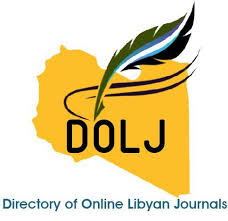Validity of questionnaire regarding job satisfaction among the workers in Misurata medical center: as important research tool in healthcare management and community medicine.
DOI:
https://doi.org/10.54361/LJM18-11Keywords:
Validity, ; Questionnaire, job satisfaction, Misurata medical centerAbstract
Background and aim: Having a high level of job satisfaction may increase the productivity and enhance the quality of healthcare services. The aim of this study was to assess the content validity and reliability of questionnaire regarding job satisfaction among healthcare workers in Misurata medical center. Methodology: A Cross-sectional study was conducted among 234 randomly selected healthcare workers working in Misurata medical center, Misurata, Libya. This study used a self-administrated questionnaire that takes approximately 15 minutes to complete and was generally well received by the respondent’s. The validation involved content validity and internal consistency for reliability. Results: A total of 300 questionnaires were distributed, returned 234 with 78% response rate. No items had an I-ICV score of ≤ 0. 6, therefore all the items for all the components in the questionnaire were considered eligible and retained. The universal agreement rates all the all items in the questionnaire was 0.66.Cronbach’s alpha coefficient, used to assess internal consistency. The total Cronbach’s alpha coefficient was 0.831; for staff relation, work factors, management, supervision and communication was 0.802, 0.845, 0.796, 0.834 and 0.742; respectively.Conclusions: The questionnaire on job satisfaction was valid and reliable with good items that enable its use for assessing job satisfaction among healthcare providers.
Downloads
References
Spector PE. Job satisfaction: Application, assessment, causes, and consequences: Sage; 1997.
Pitts D. Diversity management, job satisfaction, and performance: Evidence from US federal agencies. Public Administration Review. 2009;69(2):328-38.
Franěk M, Večeřa J. Personal characteristics and job satisfaction. 2008.
Saari LM, Judge TA. Employee attitudes and job satisfaction. Human Resource Management: Published in Cooperation with the School of Business Administration, The University of Michigan and in alliance with the Society of Human Resources Management. 2004;43(4):395-407.
Zhang Y, LePine JA, Buckman BR, Wei F. It's not fair… or is it? The role of justice and leadership in explaining work stressor–job performance relationships. Academy of management journal. 2014;57(3):675-97.
Poulston JM. Working conditions in hospitality: Employees' views of the dissatisfactory hygiene factors. Journal of Quality Assurance in Hospitality & Tourism. 2009;10(1):23-43.
Locke EA, Sirota D, Wolfson AD. An experimental case study of the successes and failures of job enrichment in a government agency. Journal of Applied Psychology. 1976;61(6):701.
Kreitner R, Kinicki A, Buelens M. Organizational Behaviour (second European edition). McGawHill, London. 2002.
Spector PE. Measurement of human service staff satisfaction: Development of the Job Satisfaction Survey. American journal of community psychology. 1985;13(6):693.
Astrauskaite M, Vaitkevicius R, Perminas A. Job satisfaction survey: A confirmatory factor analysis based on secondary school teachers' sample. International Journal of Business and Management. 2011;6(5):41.
Yelboğa A. Validity and reliability of the Turkish version of the job satisfaction survey (JSS). World Applied Sciences Journal. 2009;6(8):1066-72.
Shahzad S, Begum N. Urdu translation and psychometric properties of the job satisfaction survey (JSS) in Pakistan. The International Journal of Educational and Psychological Assessment. 2011;9(1):57-74.
Van Saane N, Sluiter JK, Verbeek J, Frings‐Dresen MH. Reliability and validity of instruments measuring job satisfaction—a systematic review. Occupational medicine. 2003;53(3):191-200.
Kennedy I. Sample size determination in test-retest and Cronbach alpha reliability estimates. British Journal of Contemporary Education. 2022;2(1):17-29.
Belias D, Koustelios A. Organizational culture and job satisfaction: A review. International review of management and marketing. 2014;4(2):132-49.
Asfaw AM, Argaw MD, Bayissa L. The impact of training and development on employee performance and effectiveness: A case study of District Five Administration Office, Bole Sub-City, Addis Ababa, Ethiopia. Journal of Human Resource and Sustainability Studies. 2015;3(04):188.
Abdullah S, Ismail I, Nor SSM, Abd Wahab F. Reliability of Knowledge, Attitude and Practice (KAP) Questionnaire on Tuberculosis among Healthcare Workers (HCWS). International Medical Journal. 2014;21(2).
Roy R, Sukumar GM, Philip M, Gopalakrishna G. Face, content, criterion and construct validity assessment of a newly developed tool to assess and classify work–related stress (TAWS–16). Plos one. 2023;18(1):e0280189.
Nanjundeswaraswamy T. Development and validation of job satisfaction scale for different sectors. International Journal for Quality Research. 2019;13(1):193.
Published
Issue
Section
License
Copyright (c) 2024 Khadija Ali Amer, Muftah Abdulssalam Elbahloul, Omar Salem Alhddad, Salem Mohamed Rafa Shenaisheh, Osama H. Almajdoub (Author)

This work is licensed under a Creative Commons Attribution-NonCommercial-NoDerivatives 4.0 International License.
Open Access Policy
Libyan journal of medical Research (LJMR).is an open journal, therefore there are no fees required for downloading any publication from the journal website by authors, readers, and institution.
The journal applies the license of CC BY (a Creative Commons Attribution 4.0 International license). This license allows authors to keep ownership f the copyright of their papers. But this license permits any user to download , print out, extract, reuse, archive, and distribute the article, so long as appropriate credit is given to the authors and the source of the work.
The license ensures that the article will be available as widely as possible and that the article can be included in any scientific archive.
Editorial Policy
The publication of an article in a peer reviewed journal is an essential model for Libyan journal of medical Research (LJMR). It is necessary to agree upon standards of expected ethical behavior for all parties involved in the act of publishing: the author, the journal editorial, the peer reviewer and the publisher.
Any manuscript or substantial parts of it, submitted to the journal must not be under consideration by any other journal. In general, the manuscript should not have already been published in any journal or other citable form, although it may have been deposited on a preprint server. Authors are required to ensure that no material submitted as part of a manuscript infringes existing copyrights, or the rights of a third party.
Authorship Policy
The manuscript authorship should be limited to those who have made a significant contribution and intellectual input to the research submitted to the journal, including design, performance, interpretation of the reported study, and writing the manuscript. All those who have made significant contributions should be listed as co-authors.
Others who have participated in certain substantive aspects of the manuscript but without intellectual input should only be recognized in the acknowledgements section of the manuscript. Also, one of the authors should be selected as the corresponding author to communicate with the journal and approve the final version of the manuscript for publication in the LJMR.
Peer-review Policy
- All the manuscripts submitted to LJMR will be subjected to the double-blinded peer-review process;
- The manuscript will be reviewed by two suitable experts in the respective subject area.
- Reports of all the reviewers will be considered while deciding on acceptance/revision or rejection of a manuscript.
- Editor-In-Chief will make the final decision, based on the reviewer’s comments.
- Editor-In-Chief can ask one or more advisory board members for their suggestions upon a manuscript, before making the final decision.
- Associate editor and review editors provide administrative support to maintain the integrity of the peer-review process.
- In case, authors challenge the editor’s negative decision with suitable arguments, the manuscript can be sent to one more reviewer and the final decision will be made based upon his recommendations.














